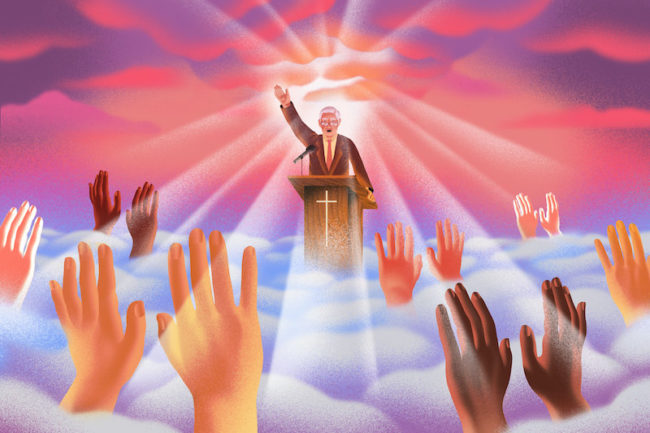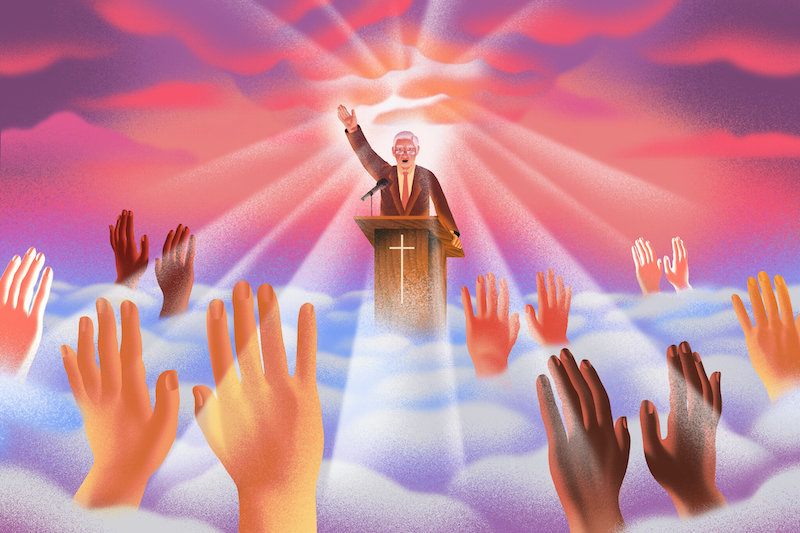
When the term prophecy is used, we generally tend to think of it as a prediction about something that is about to happen. That is not strictly correct. The term, in a religious context, simply means that it is a message that is claimed to have been communicated via them from a god.
Now, before we go any further, let’s quickly establish one thing very clearly. Despite it being rather popular these days, it is not actually real. The credible evidence that any supernatural deity has ever communicated with any human is exactly zero. To be a tad more accurate, the credible evidence for the actual existence of any supernatural entity is also exactly zero.
Clearly lots of people sincerely believe such things and promote claims, so that does make it all interesting.
The 2020 Election and Prophecy
One rather clear demonstration of the complete and utter lack of credibility concerns the rather large number of evangelical “prophets” who guaranteed that Trump would indeed win in November 2020 and that his win was “Affirmed in Heaven”. They turned out to be wrong on an epic scale.
To add to their embarrassment, many of them, not all, continue to insist that they were right, that Trump really did win, and he simply had his win stolen from him by Satan.
What they perhaps don’t appreciate is that what they are now in effect claiming is that their imaginary enemy is far more powerful, and (if you will forgive the pun), successfully Trumped their imaginary friend.
One interesting question to ponders this. They very clearly got it wrong, yet in general, many don’t question their supposedly prophetic abilities. Why is it like this?
Prophetic Standards
The latest twist to all of this is that a group of movers and shakers within this arena have now published a set of “Prophetic Standards”.
So let me introduce you to to an extract that can best be described as wiggle room …
WE UNDERSTAND that prophecies can be conditional and that many prophecies will take time to come to pass. We also recognize that prophetic language is often mysterious and symbolic, requiring interpretation and insight.
That’s a cue for things such as this …
- Ah but it really did come to pass, but only in the spirit …
- Yes, Trump will indeed be in the White House again … it was just not this specific election
- etc…
What is The Biblical Standard for Prophecy?
The book that these folks revere as divinely authored is rather clear on the topic of Prophecy and also what should happen to those that promote a prophecy that fails to come about …
20 But the prophet, which shall presume to speak a word in my name, which I have not commanded him to speak, or that shall speak in the name of other gods, even that prophet shall die.
21 And if thou say in thine heart, How shall we know the word which the Lord hath not spoken?
22 When a prophet speaketh in the name of the Lord, if the thing follow not, nor come to pass, that is the thing which the Lord hath not spoken, but the prophet hath spoken it presumptuously: thou shalt not be afraid of him.
Deuteronomy 18:20-22
No wonder these self-appointed “prophets” insist they are right and can never be wrong.
The biblical standard is that if they get it wrong then they should die.
To be wholly clear, I’m not seriously suggesting we take them out and stone them. That however is what the text they embrace as non-negotiable “truth” advocates.
What Happens After Such a Catastrophic Prophecy Failure?
We already do know.
Exactly this was studied back in the 1950s. The book “When Prophecy Fails” was published in 1956 and is now recognised as a classic work of social psychology.
What they discovered then, and it is perhaps true now as well, is that believers would find it difficult to abandon their beliefs in the face of disconfirmation. They would instead use their available social support to maintain their beliefs, and try to increase consonance by recruitment through proselyting, on the grounds that “If more and more people can be persuaded that the system of belief is correct, then clearly it must after all be correct.“
In other words, they will not only vigorously promote the prophesy as true, but try to recruit as many people as possible to buy into the belief.
These latest “Prophetic Standards” are perhaps part of that. They also introduce sufficient wiggle room to enable those that are deeply invested in the belief to retain that belief by telling themselves (and others) that it was not about a literal election win, did not apply to 2020, is not being understood correctly, etc…
In a rational world there is no avoiding the rather robustly established observation that all these supposed “prophets” were embarrassingly wrong. There was no doubt in anybody’s mind regarding what they were claiming at the time, everybody hearing them clearly understood that it was a prediction of a very specific win for Trump in 2020. The wiggle room and fuzziness is coming now as a way to preserve the emotional investment.
This is perhaps to be expected. What we do also see on a psychological level is why these supposed “prophets”, along with those that revere them, simply can’t come to terms with being wrong.
